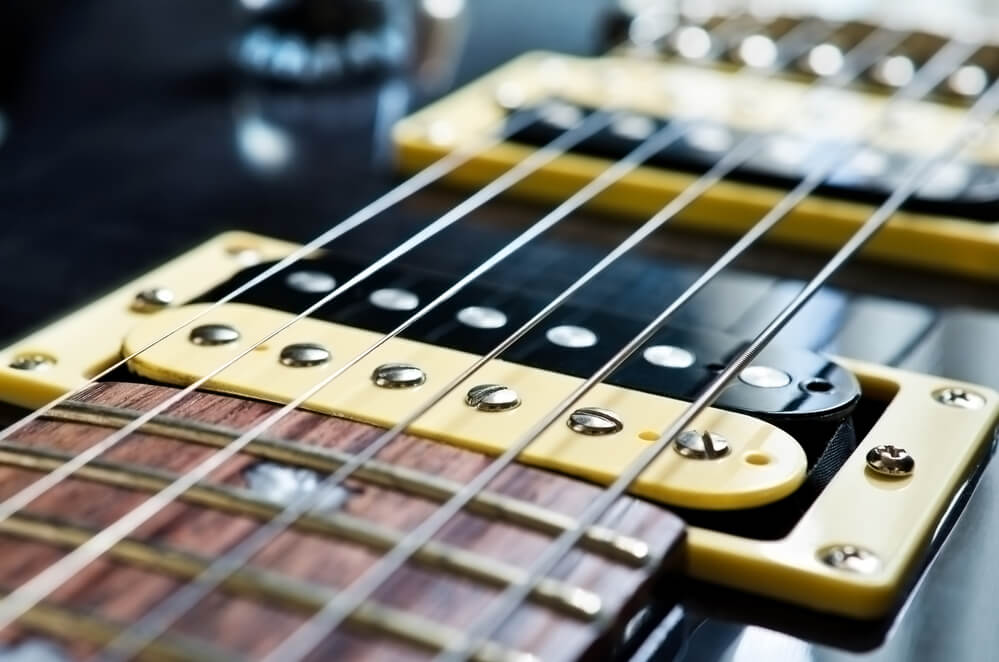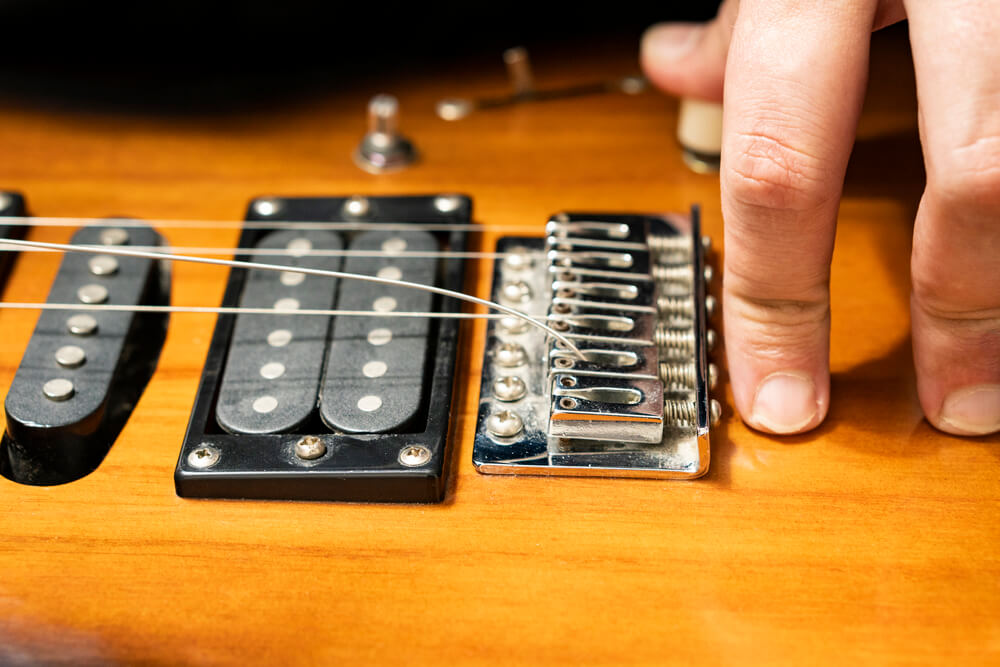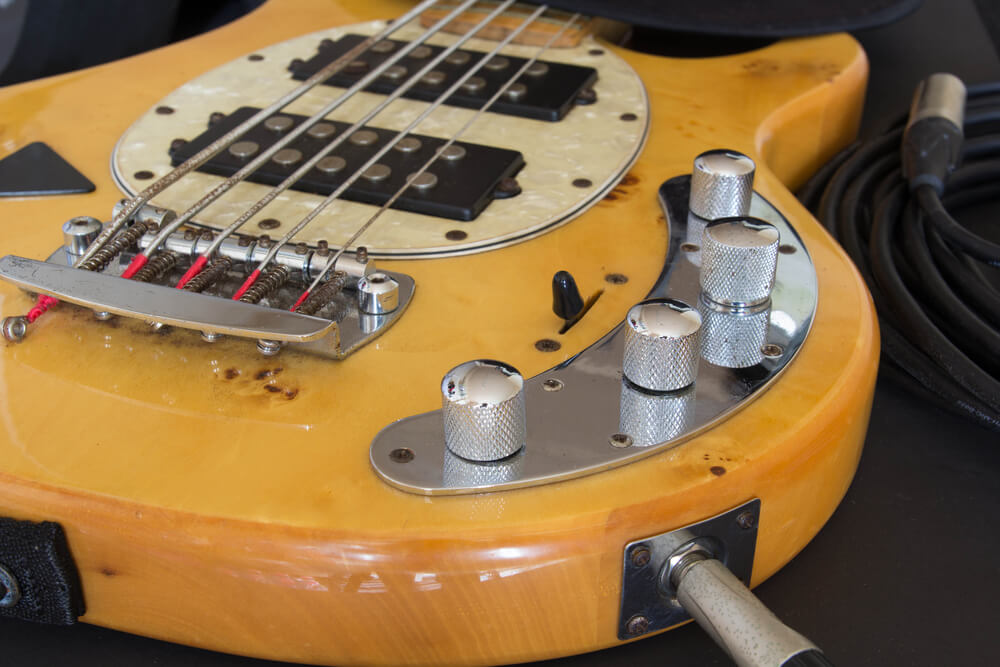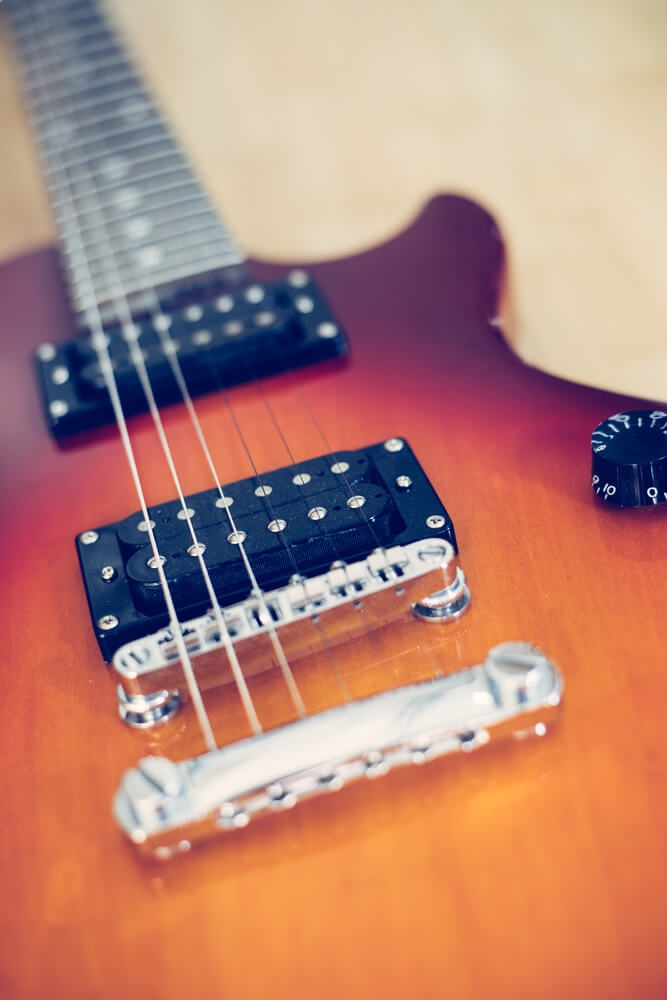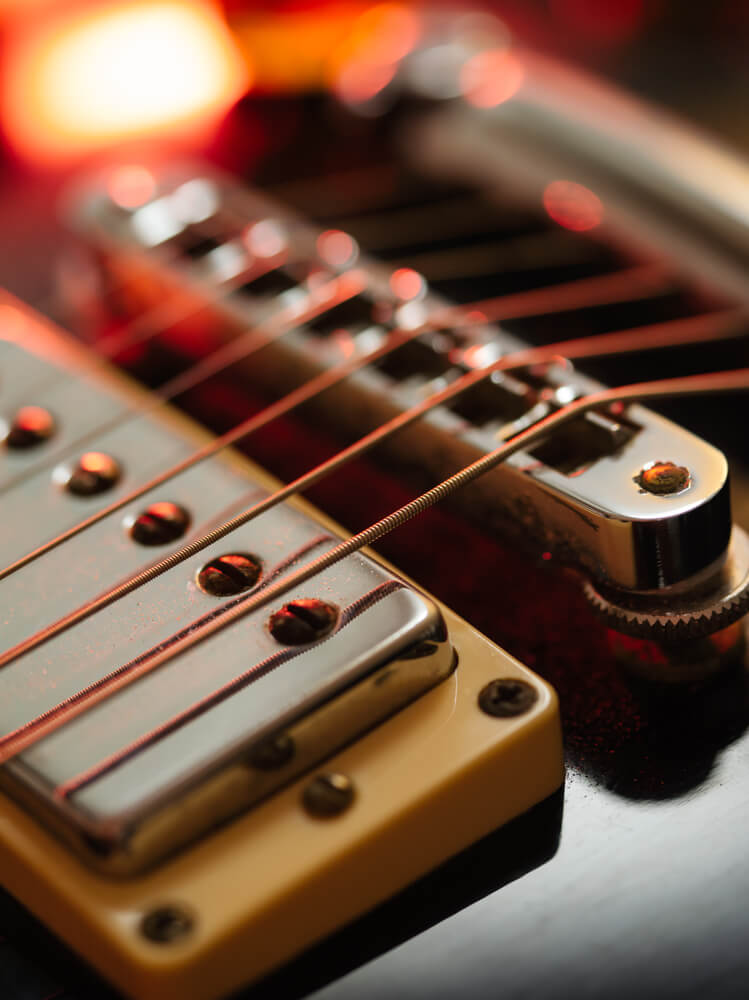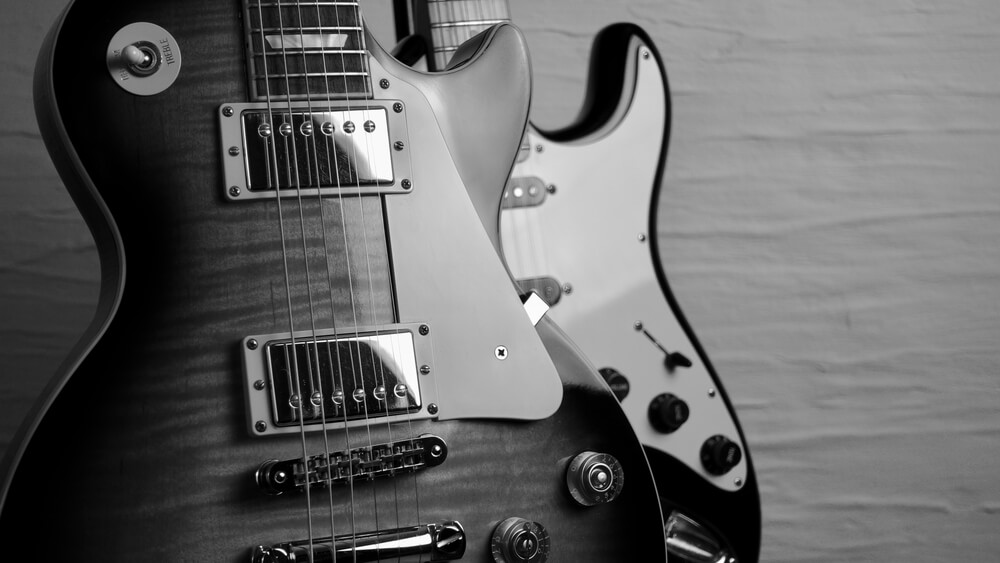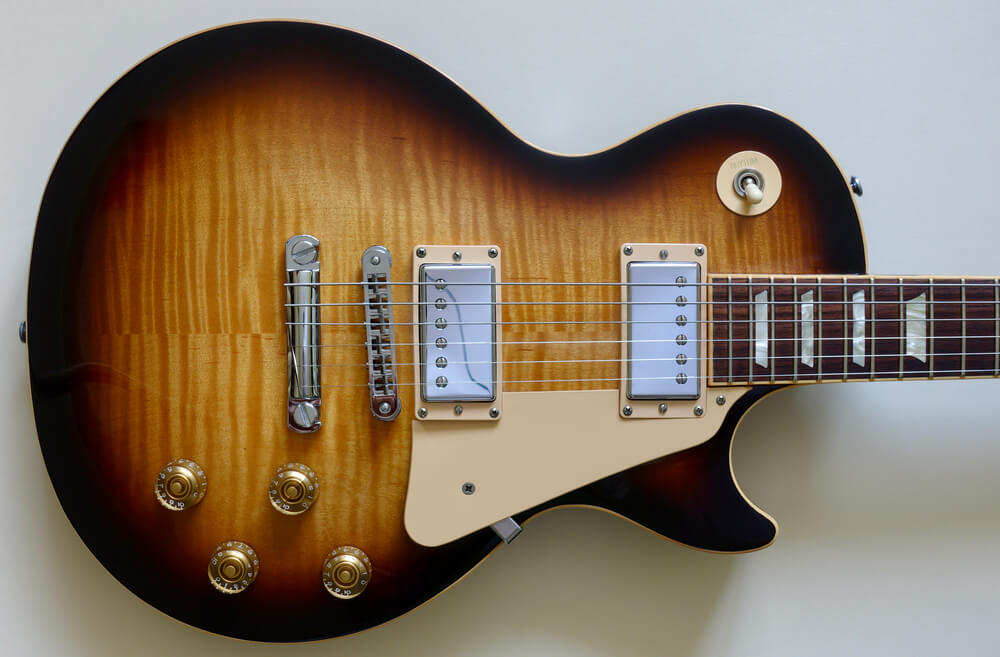As a guitarist, I know that the quality of my sound is heavily influenced by the condition of my guitar pickups. Over time, dust, dirt, and even corrosion can accumulate, impairing the performance and tone of these essential components.
In this article, I’ll share some valuable insights on how to clean guitar pickups to ensure optimal sound quality and preserve their longevity.
Before we dive into the cleaning process, it’s important to understand the role of guitar pickups in producing the rich tones we love. Pickups are essentially magnets that convert the vibration of guitar strings into electrical signals, which are then amplified and transmitted to speakers.
With regular maintenance and proper cleaning techniques, we can ensure that our guitar pickups continue to deliver the best possible sound.
Now that we have established the importance of clean pickups let’s explore the steps involved in their proper care.
Key Takeaways
- Regular maintenance of guitar pickups ensures optimal sound quality
- Knowing the right tools and materials for cleaning pickups is crucial
- Clean pickup covers, coils, and pole pieces for a well-rounded maintenance
How To Clean Guitar Pickups
As a guitarist, maintaining my guitar pickups regularly is essential in preserving the instrument’s sound quality and ensuring its longevity.
Guitar pickups are magnets that detect the vibrations of the guitar strings, converting them into electrical signals.
When playing, the pickups can collect dust, sweat, and other particles, which may compromise the sound and performance over time.
I see the value of routine pickup maintenance in multiple ways. First, it can prevent any buildup of dirt or oxidation on the pickups that can negatively affect the tonal quality.
I’ve noticed that regularly cleaning my guitar pickups allows my instrument to produce a crisper and clearer sound, which is crucial for maintaining my desired tone.
Second, taking care of the pickups also extends the guitar’s life. It’s an investment in the instrument that I’ve put time, effort, and money into.
Maintaining my pickups can prevent any unnecessary wear and tear while keeping my guitar looking and sounding its best.
To clean my pickups, some of the supplies I use include a soft cloth, a small brush, and rubbing alcohol. Using the cloth, I gently wipe the surface of my pickups, making sure not to scratch the surface.
The brush helps me reach any tight corners where dirt and debris may accumulate.
Finally, I carefully apply rubbing alcohol with a soft cloth to the metal parts of the pickup, removing any remaining spots or grime.
Integrating these simple routines into my guitar maintenance practice, I’m able to keep my instrument in pristine condition, ensuring that it continues to deliver exceptional sound and performance.
Remember, regular pickup maintenance is essential for preserving our guitars’ sound quality and ensuring their longevity.
Getting Started: Tools and Materials Needed
Before we begin the process of cleaning guitar pickups, it’s essential to gather all the necessary tools and materials. First, you’ll need a soft cloth to gently clean the pickups. Make sure it’s dry and free of any residues that could damage the pickup’s surface.
A soft brush or toothbrush is also handy for removing dust and debris from hard-to-reach areas.
Next, have a can of compressed air ready to blow out dirt and dust from the inside of the pickup cavities. This step is vital for maintaining a clean and functioning guitar.
Further, prepare a mixture of cleaning solutions, such as vinegar or vinegar solution, to clean the metal parts of the pickups without damaging them. You can use a cotton swab as an applicator for the cleaning solution.
For disassembling the guitar, a flathead screwdriver may come in handy. You’ll also need a piece of brass or a suitable substitute to protect the pickups while cleaning.
It’s essential to have a set of guitar strings since you’ll need to remove the old ones when disassembling your guitar.
Lastly, get some masking tape to protect other areas of the guitar from accidental scratches or contact with the cleaning solution.
With these tools and materials, I’m ready to begin the process of cleaning my guitar pickups, ensuring optimal performance and longevity for my instrument.
How to Effectively Clean Pickup Covers
When it comes to cleaning pickup covers, I make sure to follow a process that ensures the best results and prevents any damage.
To begin with, I gently remove the cover from the guitar to avoid causing damage to the instrument.
Before starting the cleaning process, I inspect the covers for rust and corrosion. If I notice these issues, I tend to take extra care when cleaning, knowing that rust and corrosion can affect the pickups’ performance.
For rust removal, I use a gentle, non-abrasive metal polish, which effectively removes the rust without harming the cover.
To clean the covers thoroughly, I prefer using a specialized guitar polish, as it’s formulated specifically for this purpose and helps maintain the finish of the metal.
I avoid using any chemical or abrasive cleaning products that could damage the cover.
After applying the guitar polish, I gently rub it over the surface of the pickup covers, making sure to cover all areas evenly. Once I’ve ensured a thorough application, I let the polish sit for a few moments, allowing it to penetrate and break down any grime or residue.
When the polish has had enough time to work, I use a soft, lint-free cloth to carefully buff the pickup covers, removing the polish and any dirt that it has lifted.
I also pay close attention to tight spaces and corners, as these areas can often hold a buildup of dirt and grime.
If I find that the covers have ceramic parts, I take care to clean them with a mild detergent and a soft brush, avoiding the use of any abrasive cleaning tools that could scratch or damage the ceramic components.
Once I have finished cleaning the pickup covers, I inspect them once more to ensure all rust, corrosion, and dirt have been removed. If the covers still show signs of surface issues, I might consider repeating the polishing process.
Finally, I carefully reassemble the guitar, making sure to avoid any damage to the instrument and the newly cleaned pickup covers.
Cleaning and Protecting Pickup Coils
When it comes to cleaning guitar pickups, the focus should primarily be on the coils. Due to their construction, with copper wire wound around magnets, grunge, and dust can accumulate and affect the performance of your guitar.
Today, I will explain a few essential steps to ensure that your pickup coils are clean and protected.
Firstly, I recommend removing the screws that hold the pickup in place. This will make it easier to access the coils and remove any built-up dust. Use a soft cloth or brush to gently clean the coils and surrounding area.
Take care not to damage the delicate copper wiring as you do this.
Next, it’s important to address any potential oxidation on the pickup magnets. In order to prevent corrosion, I suggest using naphtha or a similar solvent.
Apply the solvent sparingly to a soft cloth and gently wipe the magnets. This should effectively remove any grime and protect against further oxidation.
One of the key concerns when cleaning pickup coils is protecting them from moisture. High humidity can lead to corrosion and degrade the copper wire, compromising the performance of the pickups.
Therefore, I urge you to store your guitar in a climate-controlled environment, ideally between 45-55% relative humidity, to minimize the risk of damage.
Aside from these cleaning steps, it is equally important to protect your pickup coils from excessive vibrations. Tightening loose screws on the guitar and securing any loose components will help to reduce vibrations, preserving both the cleanliness and structural integrity of your pickups.
Following these simple steps can ensure your pickup coils remain clean, free from corrosion, and in optimal condition to deliver the best possible sound from your guitar.
Tips for Cleaning Pole Pieces
When it comes to maintaining my guitar and keeping it in top condition, I like to pay special attention to the pole pieces on the pickups.
These small components often accumulate dirt, sweat, and rust over time, which can lead to corrosion and negatively impact the sound quality.
Here are a few tips that I find useful for effectively cleaning pole pieces.
One of my go-to methods for cleaning metal-covered pole pieces is using steel wool. This abrasive material helps gently remove dirt and rust from the surface without leaving scratches.
I simply take a small piece of steel wool and brush it gently across the pole pieces, ensuring that they are free from any debris.
Nevertheless, if the pole pieces have a thin layer of rust or corrosion, I prefer using silver polish. It is an excellent solution for removing tarnish and restoring the metal’s shine.
To do this, I apply a small amount of silver polish to a soft cloth and gently rub the pole pieces until they are clean and shiny again.
In cases where the rust and dirt are particularly stubborn, I find that penetrating oil can work wonders. By applying a small amount of penetrating oil to the affected areas, I am able to loosen up the buildup and easily wipe it away.
It is important to let the oil sit for a few minutes before wiping it off with a clean cloth.
To remove any residual dirt, dust, or small debris, I often use a soft-bristled brush or compressed air. I carefully brush the pole pieces to ensure all particles are dislodged so they won’t interfere with the sound or cause further corrosion.
Alternatively, I can also use compressed air to blast away any remaining debris.
By following these tips and keeping my guitar’s pole pieces clean, I ensure that the sound quality remains top-notch and my guitar’s pickups stay in good condition.
Regular maintenance of these small parts can make a significant difference in preserving the overall performance and longevity of a guitar.
Restoring Rusty Guitar Pickups
I recently noticed that my guitar pickups had developed some rust and corrosion, so I decided to restore them to their original state. The first thing I did was to gently remove the rust using fine steel wool.
The abrasive nature of steel wool makes it an excellent choice for dislodging rust and other surface grime from the metal parts of the guitar pickups.
After removing most of the rust and corrosion, I soaked a cloth in vinegar and gently rubbed it on the affected areas. Vinegar is a natural and inexpensive cleaning solution that is great for dissolving rust and lifting dirt from various surfaces.
I allowed the vinegar to sit on the pickups for about 5-10 minutes before wiping it off with a clean cloth.
Once the vinegar had done its job, I used a good quality metal polish to bring back the shine and protect the guitar pickups from future rust.
I carefully applied the metal polish to the metal parts of the pickups using a soft cloth, making sure to avoid any areas that might be sensitive or could be damaged by the polish.
After polishing, I wiped down any excess polish from the pickups and surrounding areas with a clean cloth. It’s essential to make sure the guitar pickups are free of any residue, which could affect the performance or sound quality.
In conclusion, restoring rusty guitar pickups can be a simple process if the right materials are used, such as steel wool, vinegar, and metal polish.
By following these steps, I was able to bring my guitar pickups back to life and improve the overall appearance and sound quality.
General Electric Guitar Cleaning Tips
When it comes to cleaning electric guitars, I have always believed that a well-maintained instrument not only looks great but also performs better. I will share some practical tips on keeping your electric guitar in tip-top shape.
First and foremost, I recommend regularly wiping down the guitar body and neck with a soft, lint-free cloth after each practice session or performance.
This removes sweat, oils, and dust that can accumulate over time and cause damage to the finish. A gentle polish can be applied to the guitar body if it’s necessary to remove more stubborn dirt or fingerprints.
In order to keep the guitar neck in good condition, I find it helpful to clean and condition the fretboard every time I change the strings.
Using a small brush, I carefully remove any built-up grime, then apply a small amount of lemon oil or another fretboard conditioner. This keeps the wood hydrated and prevents it from drying out and cracking.
Speaking of strings, it’s essential to maintain a regular string-changing schedule. I replace my guitar strings approximately every 4-6 weeks, depending on how often I play.
Old, rusty strings not only affect the tone and playability of your instrument but can also increase the risk of damage to the frets and the neck itself.
The machine heads, or tuning pegs, tend to collect dust and dirt over time. I use a small brush or a Q-tip dipped in a gentle cleaning solution to clean the gears and posts of the machine heads, ensuring smooth and accurate tuning.
In summary, it’s crucial to keep your electric guitar clean and well-maintained. Regularly cleaning the guitar body, neck, machine head, and strings will not only prolong the life of your instrument but also improve its appearance and performance.
Conclusion: Ensuring the Perfect Tone
In my experience, maintaining the clarity and quality of my guitar’s tone is crucial for any performance or recording session. One key aspect of ensuring this perfect tone is to regularly clean and maintain my guitar pickups.
By routinely keeping an eye on the pickups’ cleanliness, I prevent the accumulation of dirt, grime, and dust. Such contaminants are known to negatively impact the pickups’ response and overall quality.
Consequently, I ensure my guitar’s tone remains pristine and free from any interference.
Simple tools, like a soft brush or cloth, tend to be quite effective for removing dust and debris from the pickup area. In more severe cases, I may choose to carefully use a compressed air canister or even disassemble the guitar, if necessary.
This allows me to achieve a deeper and more thorough cleaning, keeping the tone vibrant and clear.
In my journey with guitar maintenance, I’ve learned that making a habit of checking and cleaning my pickups goes a long way in preserving their longevity. Timely and appropriate care undoubtedly contributes to the guitar’s consistent and reliable performance.
In conclusion, taking good care of my guitar pickups is an essential practice that ensures the crystal clear tone I desire.
Engaging in regular maintenance and cleaning can prolong the life of my instrument and enjoy countless beautiful performances or recording sessions, confident in the sound it delivers.
Frequently Asked Questions
What is the proper way to clean electric guitar pickups?
To clean electric guitar pickups, I start by removing the strings and gently wiping the surface of the pickups with a soft, dry cloth. If there’s any stubborn dirt or grime, I use a cotton swab dipped in a small amount of rubbing alcohol to clean the area thoroughly.
After cleaning, I let the pickups air dry before restringing the guitar.
What products are best for removing rust from guitar pickups?
When I need to remove rust from guitar pickups, I prefer to use fine steel wool or a brass brush for lightly scrubbing the rust spots. I make sure to use caution when rubbing the metal to avoid scratching the pickup covers.
For better results, I also apply a bit of chrome or metal polish to the affected areas.
How can I safely clean my guitar’s bridge and fretboard?
To safely clean my guitar’s bridge and fretboard, I first remove the strings. For the fretboard, I use a soft brush or cloth and a small amount of lemon oil or a specialized fretboard cleaner.
I carefully apply the oil or cleaner, then wipe it off to remove dirt and grime. For the bridge, I use a cotton swab and rubbing alcohol to clean tight spots and a soft cloth for the rest of the surface.
Can household items like alcohol or vinegar be used for cleaning guitar pickups?
I’ve found rubbing alcohol to be effective for cleaning stubborn dirt or grime on guitar pickups. However, I avoid using vinegar as it is acidic and may damage the metal parts over time. Make sure to apply alcohol sparingly and allow it to air dry after cleaning.
What precautions should be taken when cleaning guitar hardware?
When cleaning guitar hardware, I pay attention to proper handling and use of appropriate cleaning products. I avoid applying too much pressure or using abrasive materials, as they may damage the finish or scratch surfaces.
Additionally, I ensure that the parts are properly after cleaning to avoid moisture-related issues.
How does oxidation affect a guitar’s pickups and sound?
Oxidation can affect a guitar’s pickups by corroding the metal parts and connections, which may lead to reduced signal strength, output, or even loss of sound.
Regular cleaning and maintenance help minimize the risk of oxidation, ensuring that my guitar continues to produce a clear and consistent sound.


